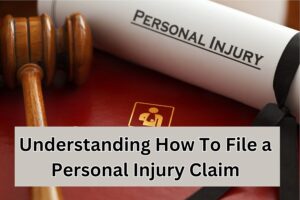Key Tips On How To Cope With A Long Term Disability

Having a long-term disability may make a catastrophic impact on your life and your family. As a life-changing process, becoming disabled can leave you physically and emotionally helpless in the long run. However, it’s not always the end of your journey because there are still ways to make your life worth living again. If an injury has left you disabled, here’s what you need to know on how to cope with a long-term disability.
Understand your disability
Remember that a disability can change the way you usually live your life. While some may find it possible to return to work, others may not because their disability doesn’t permit them to do so.
- But no matter how hard it is for you, understanding your disability will make it easier for you to accept the new reality.
- Once you’ve gained understanding about your limitations, you’ll be able to think of several options and plan for your future.
- You can do this by being an active member of your care team. Start by asking your doctor about your real condition, including what to expect and what you need to do to make the most out of your new bodily condition.
Maintain your health care needs
Long-term disability may also require long-term health care needs. However, long-term care doesn’t necessarily mean those services which are regularly performed in a nursing home.
- For instance, meeting your health care needs can also be delivered at home by your family and friends. For example, the care, love, and support that your loved ones give can play an essential part in your adjustment process.
- But regardless of what type of long-term care you may need, what’s important is your ability to assess the situation properly.
Explore your options
Being disabled may also mean facing significant changes in how you work, live or spend your time. In other words, you may have to make necessary adjustments to your routines.
- For example, you may have to try new living arrangements which are more accessible and safer for your long-term disability needs. In doing so, it’s essential to seek advice from a healthcare professional who can make recommendations about the matter.
- You can also explore your options in making your day-to-day activities more adaptable to your current situation. Take advantage of using home care services to help you adjust to your new lifestyle.
Be proactive
Dealing with a long-term disability isn’t an easy job. While your feelings can be a roller-coaster ride, staying active as much as you can can help you cope with your physical difficulties.
- Making the most out of rehabilitation services can go a long way in helping yourself to accept the key changes brought about by your disability. Speak with your health care team who can suggest appropriate rehabilitation services for your needs.
- You should also remember that being disabled doesn’t necessarily mean you can’t do anything. Seek help from some government agencies who can provide you with vocational training and adaptive equipment to help you handle your disability.
Make a plan
Planning for the financial future after you’ve been disabled can be the best thing you can do for yourself and your family. By doing so, managing your long-term disability can be much more comfortable.
- When it comes to making a financial plan, you can think of several insurance policies which you can maximize for financial support.
- Considering the expenses you may incur to sustain your long-term care needs, it’s always best to prepare your financial assets for your benefit and that of your family. Part of this is considering options such as individual disability insurance, which can be provided by these lawyers here.
- The financial assistance may include your disability insurance, worker’s compensation insurance and social security benefits.
- Seek specialist support coordination assistance who will connect you with their network of professional service providers.
Know your rights under the law
Facing reality after a disability can be traumatic and difficult, which is why knowing your legal rights can contribute to your way of coping.
- It’s unfortunate that you may face discriminatory acts following your new diagnosis. Your physical limitations may act as barriers in the workplace or any other social setting. However, you need not worry because the law protects you from discrimination in the workplace, education, transportation and other relevant settings.
- In these types of situations, it’s best to speak with a licensed lawyer who can remind you of your legal rights. By doing so, you’ll be able to know when and how to take legal actions for specific situations.
Reach out to your family friends
While feelings of anger, frustration, fear and even guilt are haunting you after a disability, learning how to reach out to a friend or loved one is part of coping.
- If it can help you feel better, try sharing things about your disability. Ask for advice from your significant others on how to be more patient and positive when it comes to adjusting.
- Make them as your source of inspiration to continue living happily despite your physical limitations.
Remember that the impact of a long-term disability extends to your family and friends. Tapping the right people and the available resources that can help you is the key to coping with a disability. In the end, don’t let your limitation to rule your life. Take control and strive out for any help you may need to adjust adequately to the situation.
Author Bio – Andrew Nickleson is a passionate writer, writing about disabilities and the law. He has written about many subjects aimed to help those who have questions unanswered. In his spare time he enjoys working on volunteering for those less fortunate.






